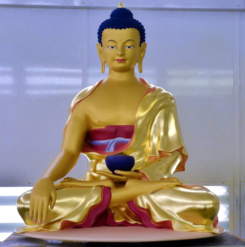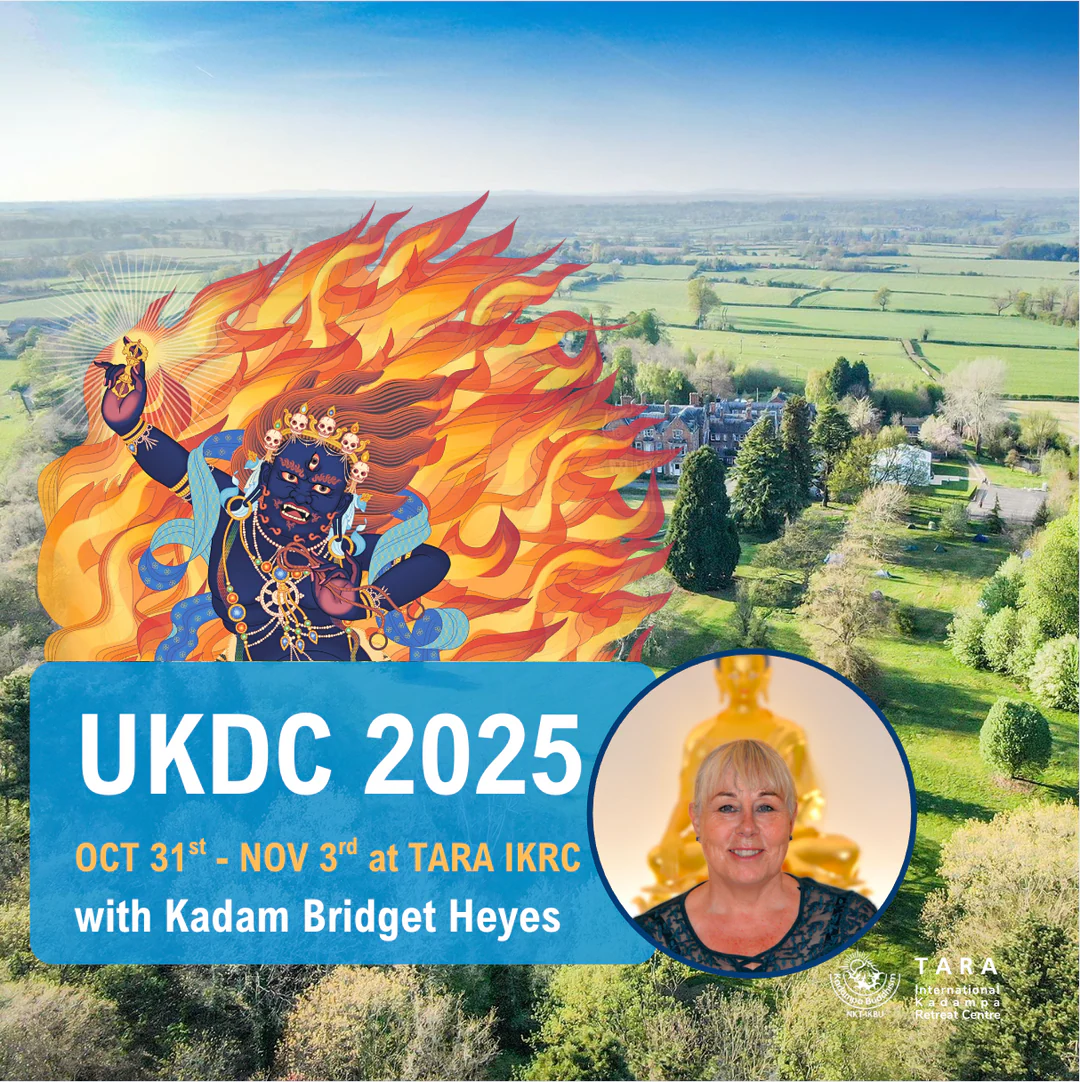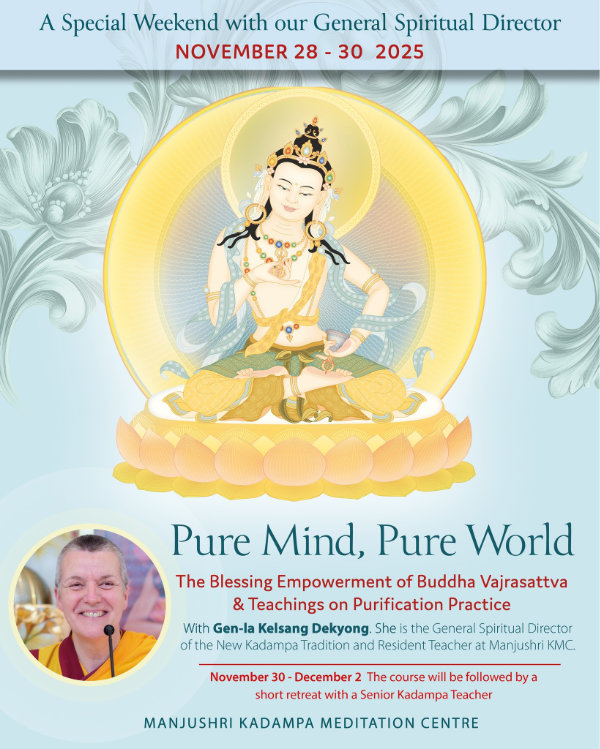- Learn to relax and let go of stress and anxiety
- Protect your peace of mind – even in challenging situations
- Improve concentration and focus
- Develop genuine and realistic optimism and positivity
- Everyone can benefit and is welcome to attend – you don’t need to be a Buddhist
- Classes are suitable for both complete beginners and those who already have experience of meditation.
- Sessions begin with a simple guided meditation to help stop distracting thoughts and calm the mind.
- This is followed by a talk on a specific topic relevant to daily life and another guided meditation based on the talk.
- Seating is in chairs but you are welcome to sit on a cushion if you prefer.
- Classes are self contained so you can come to a whole course or just drop in when you can.
- No need to book for the weekly drop-in classes.
Weekend & Special Events
in Exeter
Morning course with Gen Chonyi
Saturday 21 February, 10.00am – 12.30pm
@ Kadampa Meditation Centre, Exeter, 55 Union Road, Exeter
Our post Valentines Day event! Talks and guided meditations showing how to find happiness, contentment and a profound sense of connection whether we are with others or alone.
Continental breakfast served in the break. Everyone welcome - no previous experience needed.
Session one 10 – 10.45am
Break with breakfast!
Session two 11.30am – 12.30pm
> £15 > Students £12 Please book in advance online
(£3 for members for breakfast - please email us to book)
Morning Retreat with Louis Bartlett
Saturday 7 March, 10.00am – 12.30pm
@ Kadampa Meditation Centre, Exeter, 55 Union Road, Exeter
Simple breathing meditations and visualisations to still the mind, create inner space and refresh your energy.
To enhance the experience on this course we will keep silence in the breaks between the meditations. Self-service hot drinks and refreshments included.
Session one 10 – 10.40am
Break
Session two 11 – 11.40am
Break
Session three 12 – 12.30pm
> £15 > Students £12 Please book in advance online
(£3 for members - please email us to book)
Drop-in Meditation Classes
in Exeter and Devon
Refresh your mind and enjoy a moment of calm with these simple, practical meditations.
February 3, 10, 17, 24
March 3, 10, 17, 24, 31
£3 per class
All welcome – just turn up
l
FINDING HOPE IN A CHALLENGING WORLD Tuesdays 7.30-8.45pm, with Gen Chonyi
Talks and guided meditations to cultivate stillness, let go of stress and find a sense of clarity and hope
February 3, 10, 17, 24
March 3, 10, 17, 24, 31
£6 per class / students £5
All welcome – just turn up
RD&E Hospital Wonford, Chaplaincy Centre, Area O, Level 2
Meditations to relax, unwind and get a fresh perspective in challenging times. Staff, patients and visitors are all very welcome.
February 11, 18, 25
March 4, 11, 18, 25
FREE Staff, patients and visitors all welcome – just turn up
February 5, 12, 19
£5 per class / students £4
All welcome – just turn up - you can attend any or all of the sessions
Talks and guided meditations to cultivate stillness, let go of stress and find a sense of clarity and hope
February 5, 12, 19
March 5, 12, 19, 26
£6 per class
Just turn up on the day – you are welcome to any or all of the sessions.
In Depth Study Classes
Classes for those who wish to go a little deeper.
Exeter, Pure Land Centre
Enrolled Study Class
Joyful Path of Good Fortune
9.30-12.45pm
Festivals
IN THE UK AND WORLDWIDE
TESTIMONIALS

“Normally we divide the external world into that which we consider to be good or valuable, bad or worthless, or neither. Most of the time these discriminations are incorrect or have little meaning. For example, our habitual way of categorizing people as friends, enemies, and strangers depending on how they make us feel is both incorrect and a great obstacle to developing impartial love for all living beings. Rather than holding so tightly to our discriminations of the external world, it would be much more beneficial if we learned to discriminate between valuable and worthless states of mind.”
Geshe Kelsang Gyatso
from the book How to Transform Your Life














